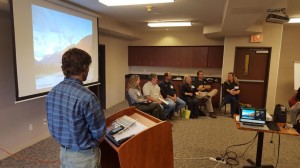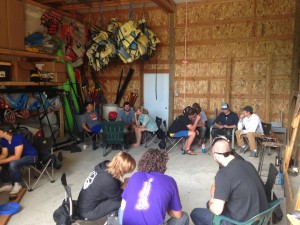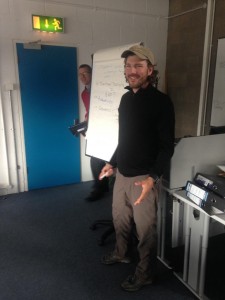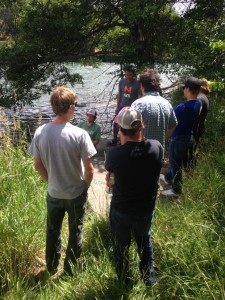By Dan Moore, AdventureEDU Educator, Contributor to AdventureEDU’s Guide Training program, and CEO of Pandion Consulting & Facilitation
Comprehensive Adventure Travel Guide Training: Built Around a New Industry Standard
From lengthy discussions at Adventure Travel World Summits, to conversation threads on The HUB, the adventure travel community has been requesting assistance and more training resources for adventure guides for many years.

As part of a long term response, the ATTA convened an industry working group in 2015 to draft an adventure travel guide qualification and performance standard. The working group separated adventure travel guiding into five core competencies: technical, wilderness medicine and first aid, customer service, content delivery and sustainability. Using the output of this working group, along with its own research and the expertise of its educators, the ATTA developed and now offers a training course for adventure travel guides.
At the foundation of this course is the recognition that adventure travel guides have a more complex set of training needs than are currently addressed through available training programs.

“While resources generally exist around the world for learning technical skills, a more holistic curriculum was needed to adequately prepare guides with the range of skills necessary for excellent adventure travel guiding,” said Christina Beckmann, ATTA Director of Research and AdventureEDU.
ATTA’s newly created Immersion Field Training for Adventure Travel Guides incorporates the five competencies identified by the industry working group and is especially strong in the areas that, up until now, have received little formal training for adventure travel: content delivery, customer service and sustainability.

What makes this course different from other guide training courses is that it has been designed by experienced and successful adventure travel guides, and has a core purpose of strengthening commercial adventure travel guiding worldwide. Much of the training that adventure guides currently have access to is specific to activities, such as rock climbing or kayaking, and does not approach training from the holistic perspective of a commercial adventure travel guide. The AdventureEDU course incorporates guide-specific customer service techniques, educationally-aligned content delivery methodology, along with the most current sustainability content. Additionally, this course incorporates training where guides are at their best – out in the elements – through a mixture of classroom and field activities.
Strengthening Industry Structure Through Better Guiding
Investing in adventure guides will gradually elevate the professionalism of our entire industry.
The ATTA supported the working group to create the adventure guide qualification and performance standard because it recognizes that elevating the quality of adventure guiding not only supports individual tour operators, but also the health of destinations and the global adventure industry.

Unfortunately, in many parts of the globe, guiding is not universally viable as a longterm career or profession. In such places, guide positions are often filled by young people who routinely cycle out of the industry. Guides who love their work are forced to abandon the field when it is difficult to make a consistent, year-round salary, something that is especially true in destinations which suffer from seasonality. Businesses, not knowing if their guides will return from year to year, tend to limit their investment in staff training more towards essential items – activity-specific and safety-focused. This situation can spiral downward rapidly: when a significant part of the industry is made up of guides with minimal training and minimal life experience, it is difficult convincing customers that it is worthwhile paying higher prices for guided travel. Over time this can negatively impact the destination as a whole, as guides are frontline ambassadors not only for the companies they work for, but the destinations in which they work.
Preliminary research done by the ATTA suggests that in destinations where guide qualification and performance standards exist, training resources are more accessible and utilized by guides. This leads to clearer paths of advancement for guides, and possibly guides staying employed in the field longer. All of this is vital to the advancement and evolution of the commercial adventure travel industry.
Learn more about AdventureEDU’s Guide Training programs.
Review the International Adventure Travel Guide Qualification and Performance Standard.
